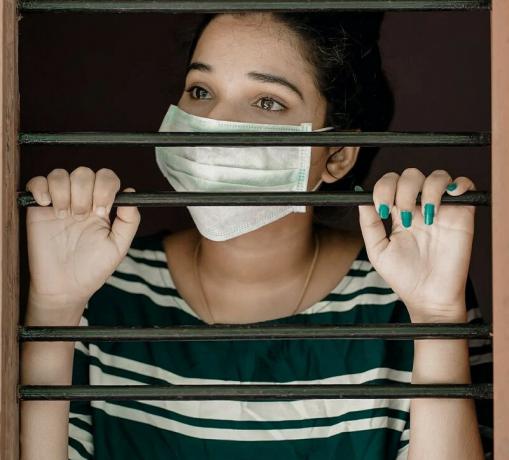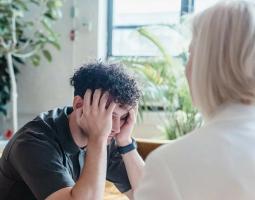The 4 main psychological effects of COVID-19
COVID-19 is, above all, a disease with symptoms of an organic nature and that are addressed from the field of medicine; however, it should also not be overlooked that practically all diseases capable of affecting the quality of life in this way life or even to cause death in the worst cases, they also have the capacity to generate psychological alterations significant. And this is no exception.
For this reason, it is important to know, albeit roughly, the type of emotional, cognitive and behavioral changes that COVID-19 can generate in us; anticipating them helps manage them and get the right help in each case. So here we will take a quick look at the psychological effects of COVID-19, taking into account that they do not have to appear in all people who have developed this disease.
- Related article: "5 signs of poor mental health that you should not overlook"
What are the most important psychological effects of COVID-19?
Due to its very nature, COVID-19 is not known to be a disease that directly gives rise to psychological alterations; the closest thing to a change of this type that is known is the affectation in smell due to the way in which the virus can affect the parts of the central nervous system responsible for processing this sense.
Now, COVID-19 can facilitate psychological changes in a more indirect way, due to the way in which affects the lifestyle, the contexts to which the person is exposed, and the expectations. Let's see it.
1. Can lead to obsessive self-checking patterns
Whether we like it or not, our perception of COVID-19 is generally not calm, serene, or purely rational; It is highly influenced by the way in which the media has told us about this disease in recent months, the urban legends and myths that are already circulating about it, etc. In many cases its dangerousness has been exaggerated or completely erroneous beliefs have been given wings.
For this reason, not a few people with COVID-19 internalize the pattern of behavior of self-checking their own health, either trying to go many times to the doctor or looking in the mirror a lot, paying close attention to certain symptoms and feeling them more intensely for it etc It is a phenomenon similar to hypochondria, but in most cases it does not become so serious as to be considered a psychopathology.
- You may be interested: "Hypochondria: causes, symptoms and possible treatments"
2. Social isolation
Many people with COVID-19 feel the need to take very extreme measures to isolate themselves socially and minimize the risk of contagion, which is sometimes counterproductive because it damages one's own mental health more than it protects others from real danger.

- Related article: "Unwanted loneliness: what it is and how we can combat it"
3. Causes concentration and memory problems
A significant proportion of people with COVID-19 show problems concentrating on tasks or remembering things, although these impairments cognitive They are not permanent and in the vast majority of cases they fade in a few weeks, just like the rest of the symptoms. It is believed to be due to psychological overload that it means to adapt to those days of coping with COVID-19, and not due to the direct effects of the virus, although little is still known about this phenomenon.
4. May lead to psychological disorders
In the most extreme cases, the discomfort triggered by COVID-19 can take the form of a real disorder psychological, that is, a diagnosable psychopathology that appears in diagnostic manuals such as the DSM-5. Among them, it has been observed that the most common that occur among those who have gone through the disease of the coronavirus are anxiety disorders, insomnia, major depression and/or stress post-traumatic In addition, these pathologies can overlap each other, occurring several at the same time (for example, depression usually goes hand in hand with anxiety problems, too).
Now, it should be noted that most cases of COVID-19, especially after the first months of the pandemic, are mild and moderate, with relatively little probability of having a psychological impact sufficient to cause the appearance of one of these disorders. Not only because they do not generate a lot of pain or discomfort directly, but because since they are not necessary hospitalizations, the person is exposed much less to stressful situations and that they are out of the ordinary in their day to day day.
- Related article: "Are there mental sequelae from COVID-19?"
Do you need professional psychological support?
If you are looking for psychological assistance services to better regulate and manage your emotions or learn to deal with anxiety, contact me.
My name is Thomas Saint Cecilia and I am a psychologist specialized in the cognitive-behavioral intervention model; You can count on my services through face-to-face sessions or by video call.



